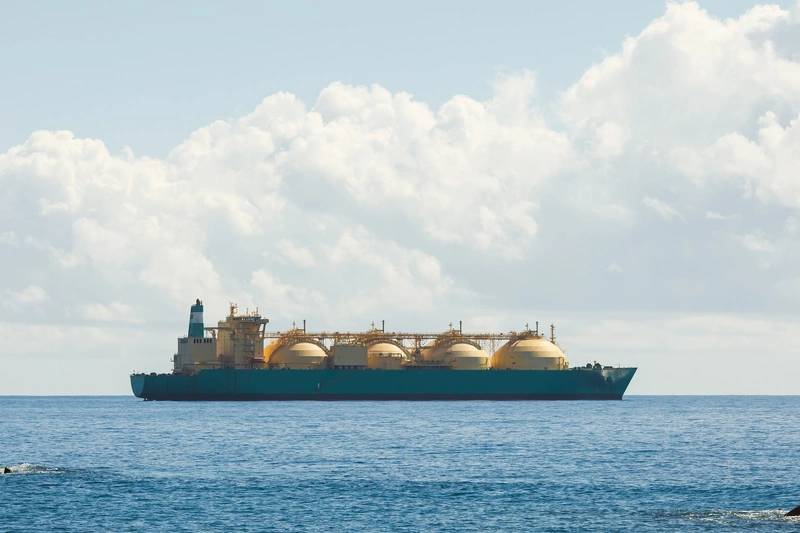Rare LNG Carrier Sails Through Red Sea Amid Houthi Attacks
The first liquefied natural gas (LNG) tanker since January is sailing through the Red Sea, just days after Yemen-based Houthi militants sank their second vessel in attacks begun last November.
The vessel, Asya Energy, passed Yemen, travelling through the Bab al-Mandab Strait on Tuesday, shiptracking data from LSEG and Kpler showed, the same week that the second ship believed to have been hit by the militants sank.

"Asya Energy is the first LNG tanker to sail through the Strait since January, when LNG voyages through the Red Sea were suspended amid repeated rocket attacks," said LSEG analyst Olumide Ajayi.
Data showed the ship was carrying cargo, he added.
Most LNG tankers have avoided the route after the Houthis' repeated drone and missile strikes in the Red Sea region. They call the attacks, since expanded to other busy waterways, acts of solidarity with Palestinians in Israel's war in Gaza.
The Suez Canal links the Red Sea to the Mediterranean, creating the shortest shipping route between Europe and Asia, and is connected to the Gulf of Aden by the Bab al-Mandab Strait between Yemen and Djibouti.
Palau-flagged Asya Energy is heading for Gibraltar, Kpler data shows. It previously called at the Sohar port in Oman, LSEG data showed.
It was not immediately clear who had chartered the ship.
Nur Global Shipping manages the ship, which is owned by Lule One Services, Equasis data showed, with both companies based in Dubai in the United Arab Emirates.
Nur Global Shipping did not immediately respond to a request for comment when contacted on LinkedIn.
Reuters could not find contact information for Lule One Services.
The Asya Energy may soon become the first vessel to take the Red Sea passage since Jan. 12 after waiting around the coast of Oman since mid-January, said Ana Subasic, natural gas and LNG analyst at data and analytics firm Kpler.
"At present, automatic identification system (AIS) signal feed to our platform shows the ballast vessel has set a course towards the Gibraltar checkpoint, although ... it is too early to be making an accurate prediction," she said.
"We are keeping a very close eye on it and waiting for more ad-hoc raw signals or market sources to feed in."
Leading industry groups have called for urgent action in the Red Sea to stop attacks on merchant shipping by the Houthis, whose first ship sunk was the British-owned Rubymar, on March 2, about two weeks after being struck by missiles.
(Reuters - Reporting by Emily Chow, Additional reporting by Cassandra Yap; Editing by Susan Fenton and Clarence Fernandez)
